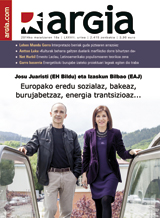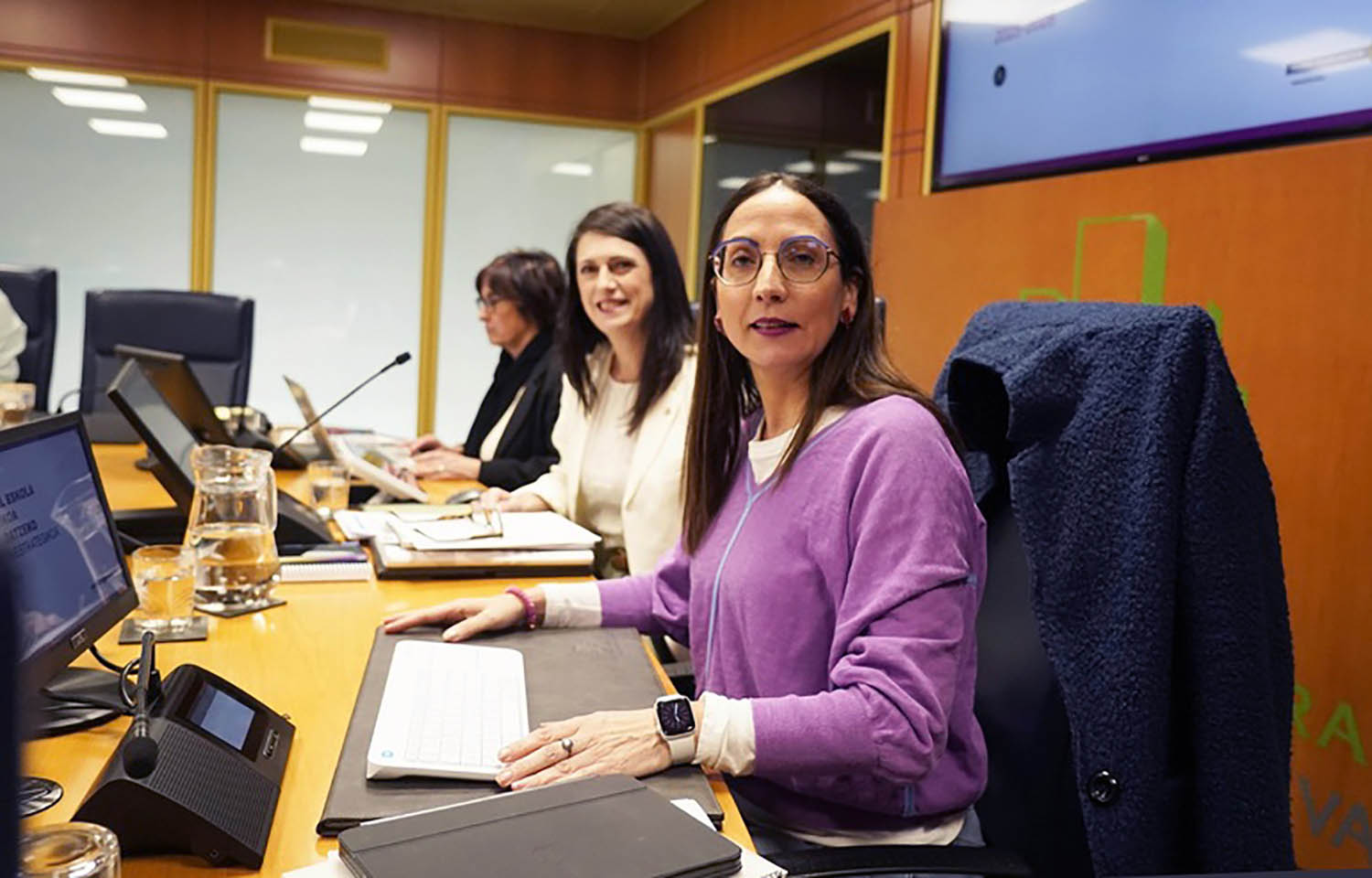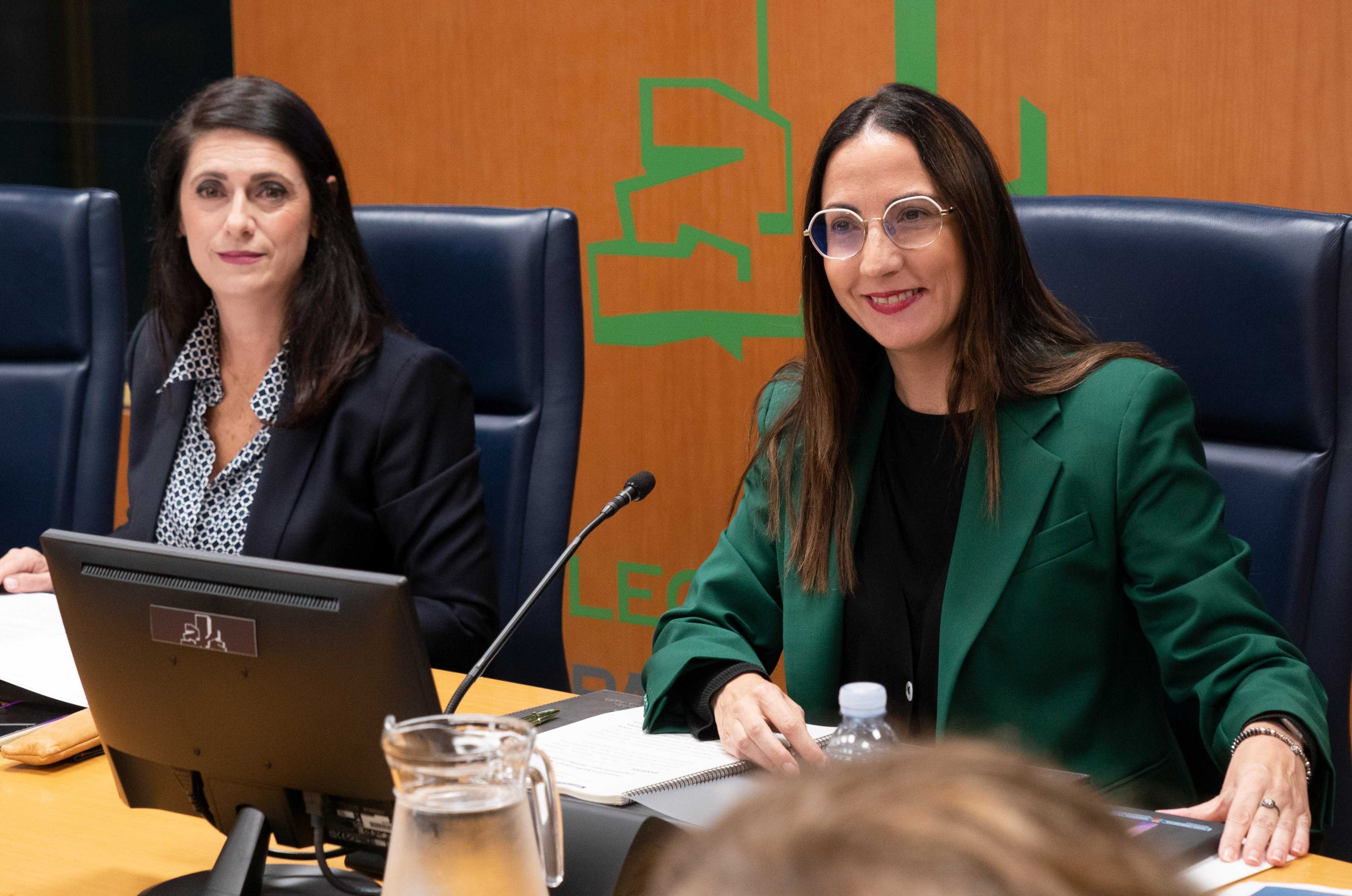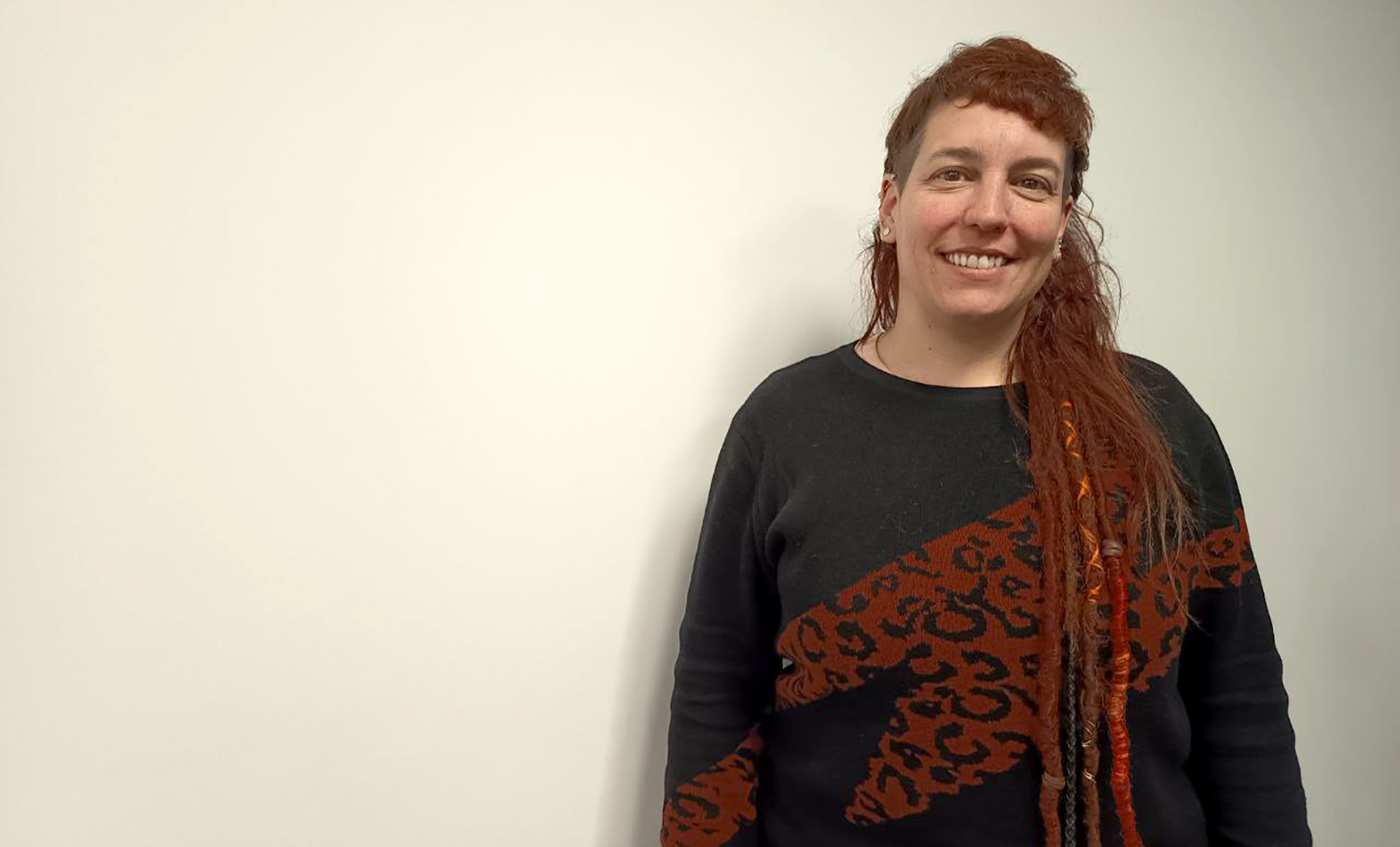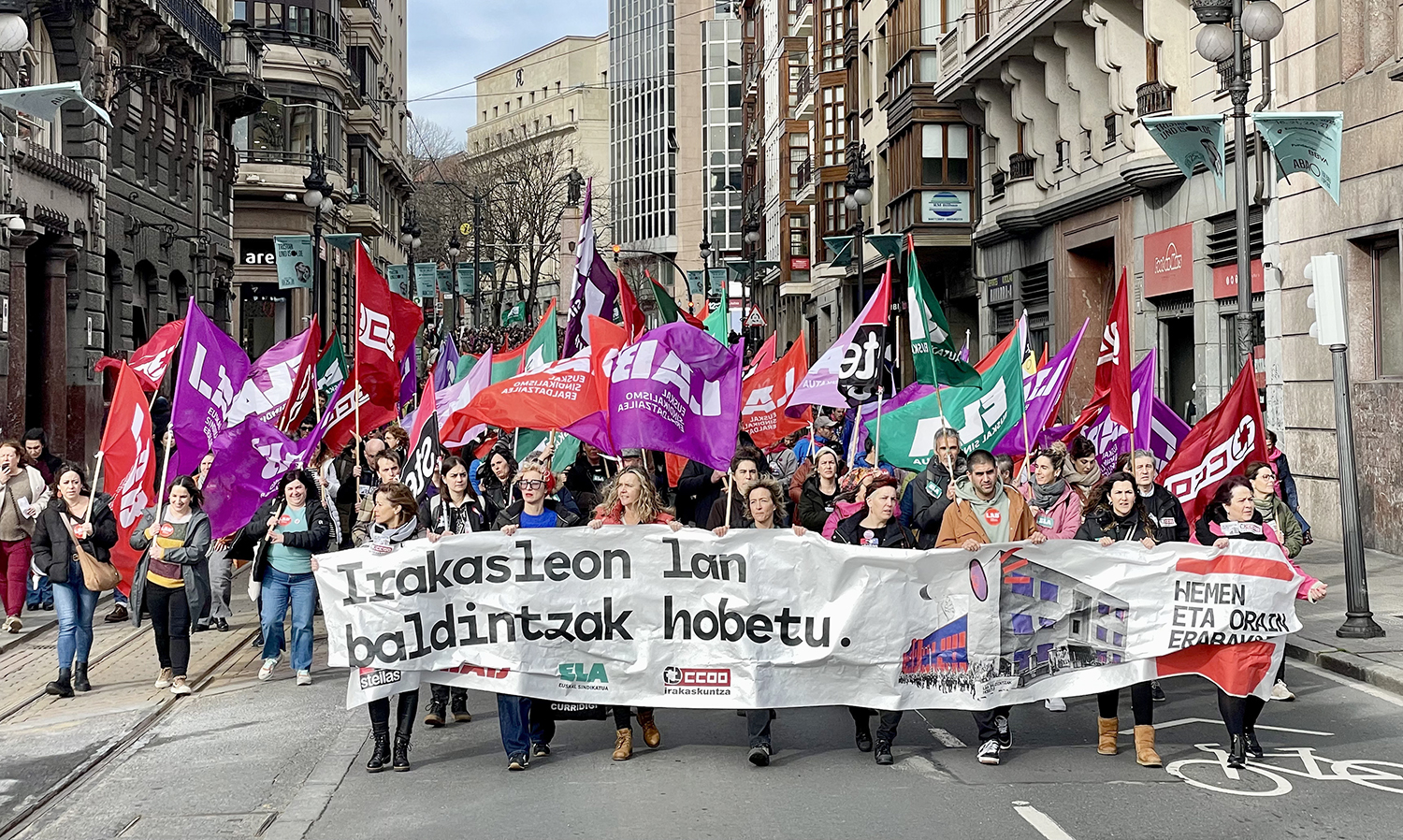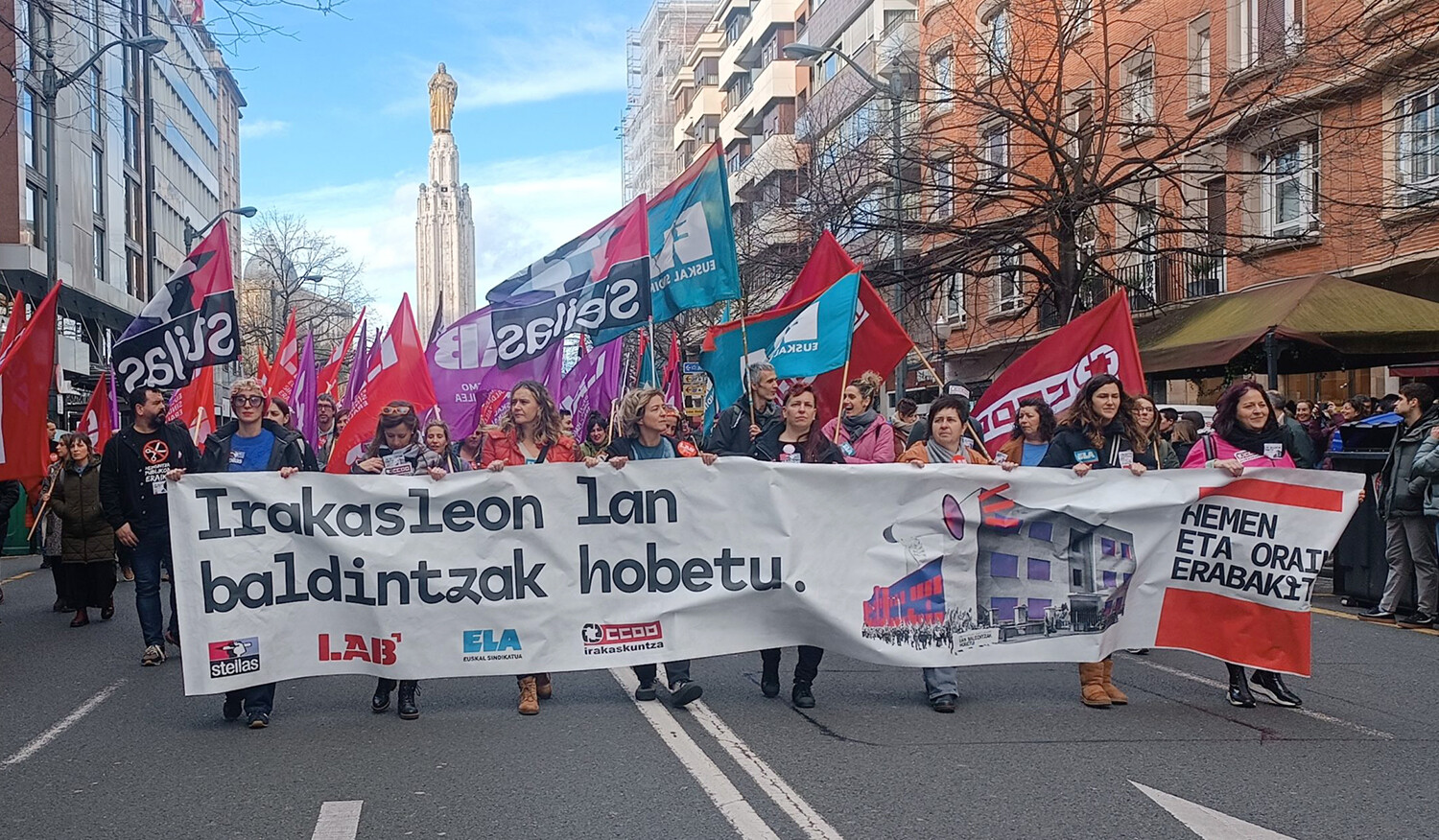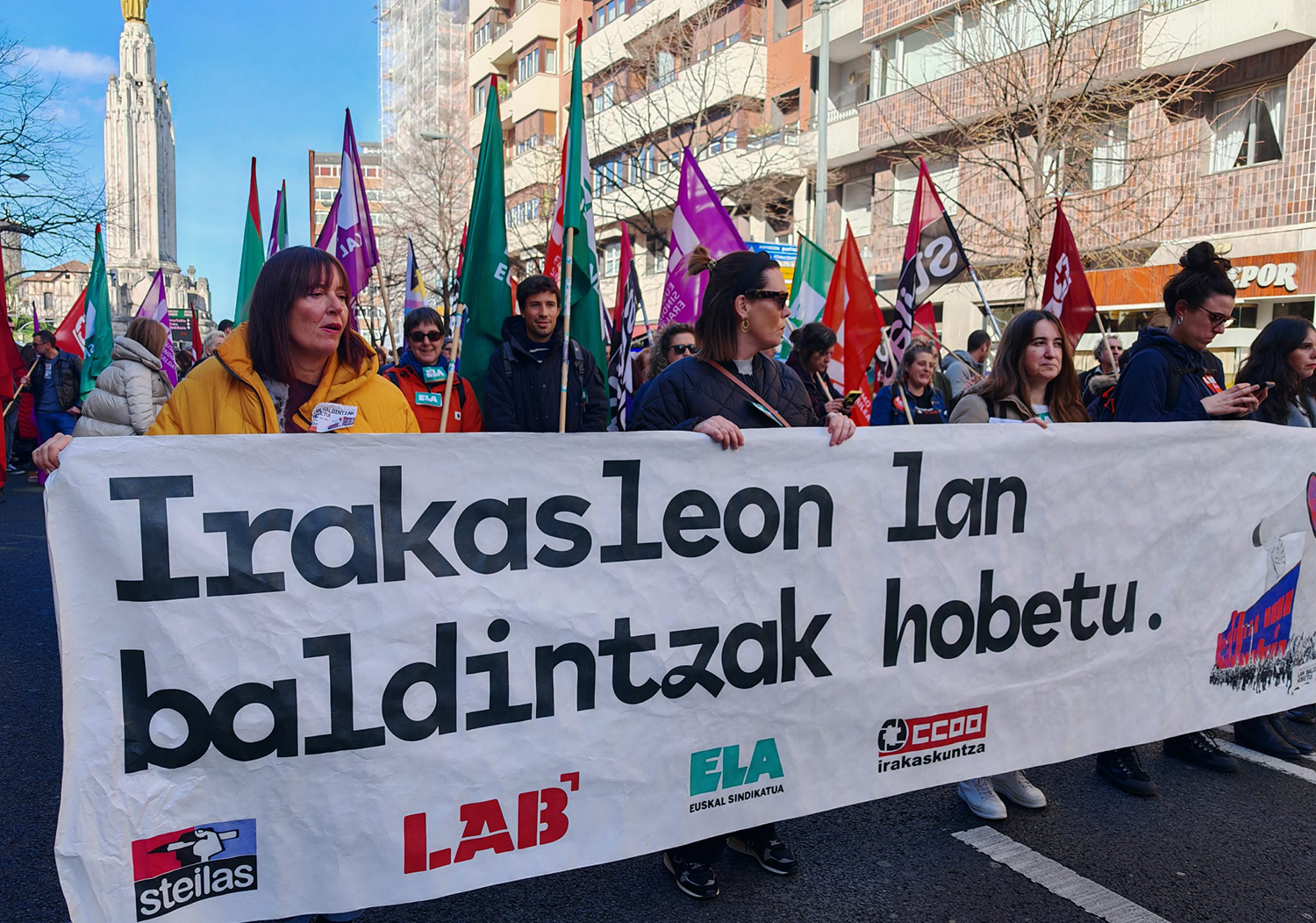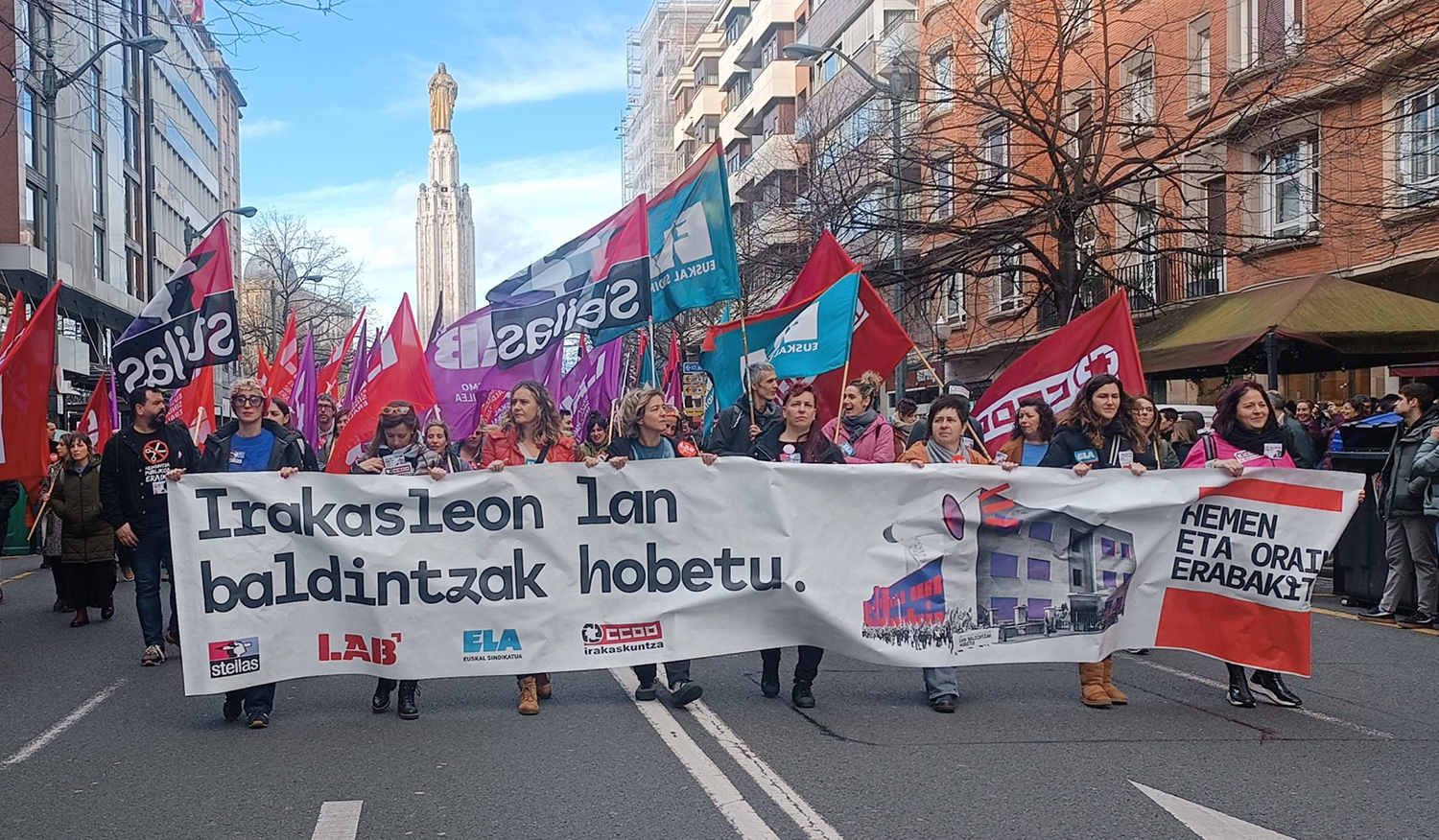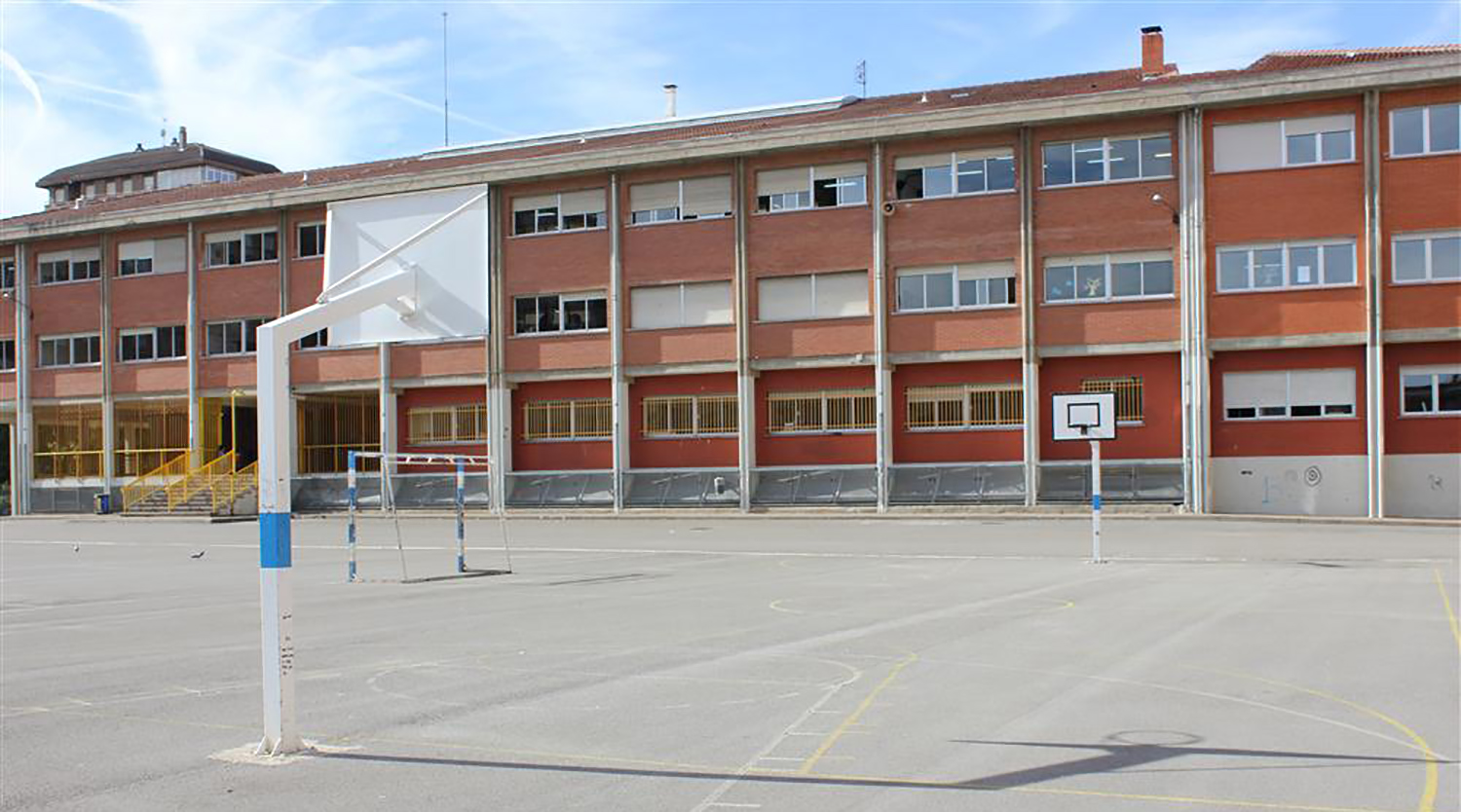How to ensure multilingualism without harming the Basque Country
- As the knowledge of Euskera increases, the use of Euskera has decreased. At the same time, in a globalized world, it is increasingly important to know languages. What can be done, then, to create multilingual young people in schools, but not to make the health of the Basque country worse? The Ikasle Euskaldun Eleanitzak programme is in operation in two public centres in Dima and Donostia-San Sebastián.
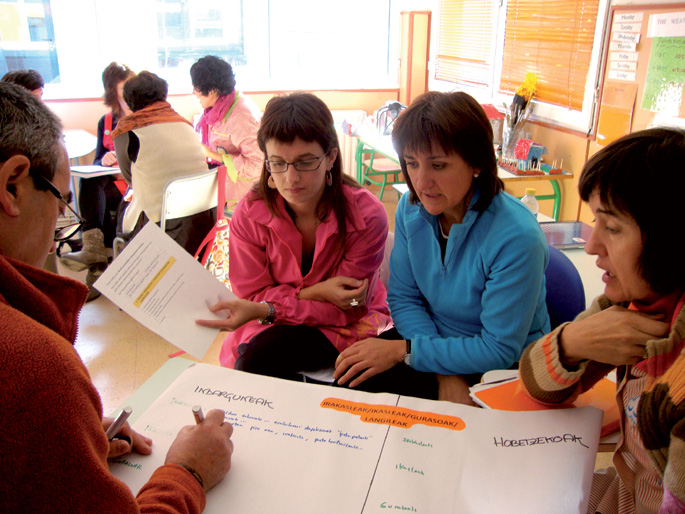
“First of all, we must promote the use of Euskera. With this endorsement, we will reflect on the rest of the languages.” The reflection is the work of Julen Etxeberria, director of the ikastola Aitor of Donostia. There and at the Ugarana Public School of Dima in Bizkaia are developing the Ikasle Euskaldun Eleanitzak project. The objective: to care for, strengthen and enhance the use of the Basque Country; by strengthening this base, they will develop techniques to master English and Spanish.
The idea emerged from the concern that the Council of Social Entities of the Basque Country had about six years ago. In his opinion, current language models do not guarantee Euskaldunization, while incorporating other languages into the curriculum without having an integral project. They do not believe that the formula works for Euskaldunisation, nor that it is for the sake of multilingualism. That is how the Ikasle Euskaldun Eleanitzak program was born. A working group was set up to shape the project, and then the Sortzen association, which works in the Basque public centres, was commissioned to translate into reality what was conceived in the abstract. Two pilot centres were selected to test a new experience of multilingualism.
Thus came the dynamic to Dima and the Donostiarra neighborhood of Egia. They wanted two places with a different sociolinguistic, urban and demographic reality, in order to develop the same idea and to see and take into account the possible variants that could occur. The classes gave their assent and began to be applied on a daily basis two courses ago.
Multilingualism is yes, but how?
But how do you do it to incorporate this change? To use the Basque language and to learn the other languages well? “Step by step,” says Etxeberria. It's a slow process that takes time. The exhibition was carried out by Zefe Ziarrusta, head of studies at the Dima Public School. In his opinion, the first step is to increase the “affective links and experiences” with the Basque Country.
Diman started the program in a simple way: first, they made a diagnosis of the situation of the Basque Country in the school and in the town. Now, they are meeting with local agents to, among all, obtain new spaces and opportunities for Euskera outside the school environment. At Donostia-San Sebastián they have also followed the same path, first they have analysed the environment and subsequently talked to the social partners to jointly create the language programme to be developed.
Thus, the work is developed around two main lines. On the one hand, they work in the school to raise awareness of the importance of the Basque country, and on the other, in the people. To this end, Ziarrusta has stressed that joint work is "very important" and that collaboration is necessary. And asked why, he makes it clear. “Because in education we are all agents.” Etxeberria has also begun to throw away the same idea: “We want to extend the use of Euskera throughout society. We are all actors and we all have a duty, parents, social groups, municipalities...”.
They have now produced a report to structure the Basque plan, a kind of guide to working on multilingualism. Thus, they have collected the minimum conditions that must be guaranteed by the individuals and groups of the peoples. Thus, the teaching staff is responsible for the methodology of teaching languages and promotes an active attitude of use. According to the creators, the document that has been edited will be a "roadmap" that can be used by other schools throughout the Basque Country. However, they are aware that local circumstances make work very dependent. Ziarrusta has explained that each one will have to complete the package of advice he has published with the gaze set in his surroundings.
Concrete initiatives under way
Concrete initiatives are still being taken to strengthen the Basque country, as this is a five-year plan, and this is the second of this year. On the contrary, they have pointed out that some dynamics are already structured in a concrete way. For example, in the school in Dima, the presence of Euskera has increased in the free time of children; among other things, in after-school hours such as music or sports. On the other hand, in the breaks of the Herri Eskola, dynamic games have been organized in Euskera.
In terms of faculty, both centers are working on improving methodological and didactic techniques. Etxeberria says that Aitor Ikastola is “economizing” teaching techniques in terms of languages and shapes what is said through an example: “If you’re working on adjectives in Basque, you don’t have to give content to the adjective in the other languages, it’s already taken for granted.”
And what about the other languages?
Although they want to strengthen the foundations of the Basque Country, they want students to be trained in Spanish and English, as they have explained. So far, Ziarrusta has thought that the treatment of languages in school has become "bad". Ironiza explains: “Imagine, in our time we have learned English and French, but are we able to communicate?” He has responded with a resounding ‘no’ to the question that has been put to himself. Therefore, the center now focuses its attention on the communication capacity of children. That is, the most important thing is that boys and girls are able to understand and speak idiomas.Para this, in Dima, the
school will offer children tools to develop their projects in English or Spanish. In the district of Egia, the language will be approached in the most “practical and dynamic way possible”.
Both have agreed that the Basque Country is in a "precarious" situation, so they have taken the project as a base. However, they are aware of the importance of deepening the work of other languages. Etxeberria sums it up with one sentence: “We have to turn the diglosic situation of the Basque country around. From there, we know more and more languages, better.”
Festival Sortzen 2014 The festival for the new Basque public school will be held in Huarte on 18 May. |
Sare publikoko ikastetxeetan Euskal Eskola Publiko Berriaren alde lanean diharduen elkartea da Sortzen. 1991n sortu zen eta geroztik EAEko eta Nafarroako 75 ikastetxe batzen ditu. Horiek guztiak ideia nagusi baten bueltan: indarrean dagoen eskola ereduari buelta ematea eta balore jakin batzuen baitan egituratuko den euskal hezkuntza eraikitzea. Orain, Ikasle Euskaldun Eleanitzak proiektuaren garapenerako ari da ekinean, baina programa hori baino gehiago da elkartea.
Sortzeneko kide Begoña Bitorikak azaldu du eskola “berria” nahi dutela, eta abstraktuan ulertzeko zaila den adjektiboaren mamia azaldu du: “Horrekin orain dagoena ez dugula nahi esaten dugu”. Sei puntu nagusiren bitartez irudika daiteke Sortzenek proposatutako eskola.
1. Euskalduna eta eleanitza izatea.
2. Autonomoa pedagogian eta kudeaketan.
3. Langileen baldintzak defendatuko dituena.
4. Demokratikoa. Ikastetxeko partaide guztiak –ikasleak, irakasleak eta gurasoak– kontuan izango dituena.
5. Kalitatezkoa. Horren baitan hainbat balore defendatzen dituzte: laikoa, hezkidetzan oinarritua, integratzailea eta diskriminaziorik gabekoa.
6. Doakoa benetan eta pedagogia berritzailean ariko dena.
Gaur egun lau ekimenetan ari da lanean: orriotan jorratu dugun Ikasle Euskaldun Eleanitzak, Udaleku Irekiak, Euskaraz mintza eta Aixe Aisialdia. Azken biotan ondokoa lantzen dute.
Euskaraz mintza: Euskal jolasak lantzen dituzte, ikasleak euskaraz jostatzeko. Sortzeneko kide diren eskolei jarraibideak ematen dizkiete, nork bere ikastetxean gara dezan.
Aixe Aisialdia: Eskolaz kanpoko ekintzak euskaraz egiteko begiraleak bilatu eta eskolekin harremanetan jartzen dituzte.
Historikoki Nafarroan txertatze handia izan du Sortzenek, baina “ahulago” egon da EAEn. Bitorikak testuinguruari atxiki dio: “Nafarroan, beti ikusi da aldatzeko beharra eskoletan arazoak daudelako, eskolari egurra ematen diotelako. EAEn, ordea, jendeak ez du ikusten gabezia, baina D ereduak ez du euskalduntzen”.
Ikastetxe gehiagotara zabaltzen ahalegintzen ari da orain elkartea. Haatik, egunerokotasunak borroka fronteak irekitzen dizkie etengabe: “LOMCEren kontrako plataforman gabiltza; zonalde ‘ez-euskaldunetan’ D ereduko eskolak aldarrikatzen; Guardia Zibilak Nafarroako D ereduko irakasleei buruz egindako txostenarena gertatu da...”.
Non daude talka handienak eta zenbateraino dago gertu akordioa, EAEko hezkuntza publikoko irakasleentzat? Greba ziklo luzeari amaiera emateko sukalde lanaren eta gakoen inguruan mintzatu gara, STEILASeko bozeramaile Haizea Arbiderekin. “Grebak bertan behera utziko... [+]
Astelehen arratsalde-gaueko negoziaketa bilera luzearen ostean aurreakordiorik lortu gabe, EAEko hezkuntza publikoko irakasleak grebara deituak izan dira berriz ere; urtea hasi denetik bosgarren greba eguna izan da asteartekoa. Lanuzteek %75eko jarraipena izan dutela adierazi... [+]
Aiaraldeko hainbat irakaslek mezua igorri diete ikasleen guraso eta familiei, dagoen informazio zurrunbiloan, grebarako arrazoiak modu pertsonalean azaltzeak euren borroka eta lanuztea hobeto ulertzeko balioko dielakoan.
Grebaren bezperan Hezkuntza Sailak “edukirik gabeko” mahaia deitu zuela eta sindikatu deitzaileak “errespetatu gabe” akordioa “antzezteko” gutxiengoa duten sindikatuak “erabili” nahi izan zituela salatu ostean, beste bi greba... [+]
The time has come for us to enrol in schools in the Basque Country for the 2025-26 academic year, and in many homes the youngest of the household will take a new step soon, in September, which is schooling. Proud of the Basque Public School The members of Topagune are firmly... [+]
In Basque public schools, teachers play a fundamental role in the management of diversity. They have had to reinvent their way of doing their work in recent years. Public schools seem to me to be laboratories to explore what it is to be a person in a more complex world. Teachers... [+]









